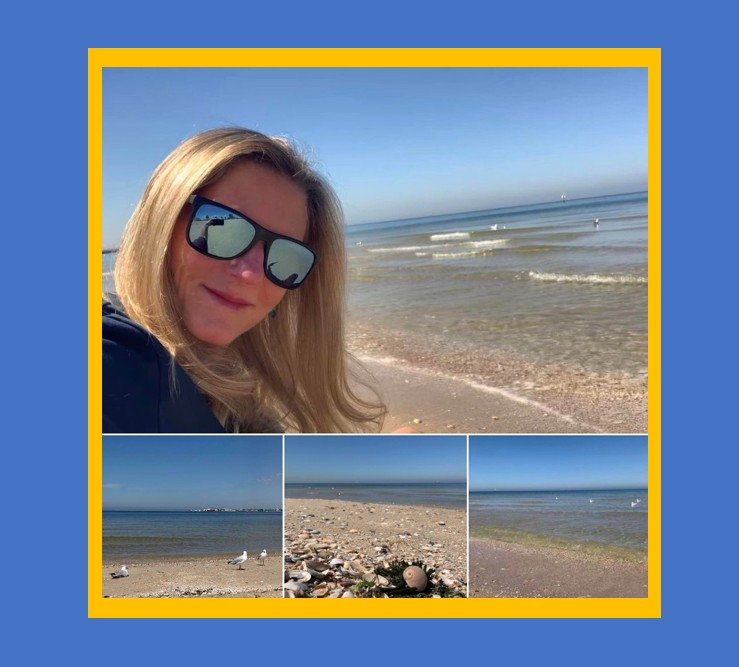Working from home is magical – if you allow yourself to enjoy the outdoors and have quick breaks outside of your home office. It’s all about the discipline of giving yourself some me time to walk away from the stresses of your office environment.
Taking regular breaks is key. But what you do during them is just as important. I often pop out and enjoy a quick morning coffee on the beach, soaking up the relaxing vibes. As a mentor & coach, I advise all my clients to manage their time sensibly and encourage these good habits in my program 24 months – New Reality Elite Program for new to industry mortgage brokers who work from home.
Here are a few tips by Stephannie Vozza
When you work from home—especially when you can call your own hours—it can be hard to take time to take a break. For me, I tend to get into a groove. Stopping and walking away seems like it would be counterproductive. However, I also find myself taking “unhealthy” breaks, such as spending time on social media or watching a YouTube video. I’m still sitting at my desk, so are they really breaks?
“Breaks are crucial,” says Cal Newport, author of Deep Work: Rules for Focused Success in a Distracted World. “If you’re working day after day and not letting up, you will burn out.”
They key, however, is to put your breaks on the calendar. If you don’t schedule them, your brain says, “I know I need to take a break at some point. Why not now?” explains Newport, who recently released The Time-Block Planner: A Daily Method for Deep Work in a Distracted World.
“You’re constantly having that ‘why not now?’ conversation in your head,” he says. “You might take a break to check the news, the election, or something else online. This saps your will power and you end up taking more breaks or you become distracted. If you know you’re taking a break in an hour, you can focus on work and enjoy the break more.”
SCHEDULING BREAKS
Newport’s view is an accurate description of my workday, so I decided to take an intentional break every day around noon to see if it helped with my productivity and stress.
On the first day, carving out 30 minutes to take a walk outside felt indulgent. I had looming deadlines. What if I got back and the break had derailed my ability to focus? I ended up feeling worried, walking fast, and returning after 20 minutes. When I sat down, however, I discovered that the break didn’t impact my ability to work. In fact, it made me feel refreshed. The next day I stayed out for 30 minutes.
Putting the break on my schedule for the day was key. One day, I didn’t stop work when I should have in order to fit in the break before a Zoom interview. I skipped my break that day and could feel my focus starting to wane later in the day. Another day, I called my sister during my break and told her about a new work project I was about to start. When I sat back down to work, I didn’t have that same feeling I do when I get some fresh air outside.
“What you do is important,” says Newport. “If you take a break in the middle of day, one of the things you should avoid exposing yourself to is something that is in the same contextual realm of normal work. If you switch to another work activity, you get cognitive pileup and it’s hard to switch your attention back.”
Also, Newport cautions against exposing yourself to obligations or tasks you can’t resolve during the break. “This will create mental drag,” he says.
AVOID THIS TYPE OF “BREAK”
One thing that should never be considered a break? Email. If you glance at your inbox, see a lot of messages, and don’t have time to empty them out, it creates a cognitive disaster, says Newport.
“Email is work,” he says. “Work is high stakes, and our brain takes it seriously. It will be difficult to get your attention back when you need to switch back to work because the brain wants to know what it’s missing. Email is the cognitive equivalent of taking shots of whiskey while you work. When you block out time to deal with it, you can check a box that it’s done and short-circuit the rumination.”
I discovered my breaks definitely have a sweet spot: 20 to 30 minutes. Anything more than that, and I find it hard to get back into a place of focus. On days when I use my break to run errands, I make sure the work I need to complete doesn’t require my full concentration.
Newport says remote arrangements for people who aren’t used to working from home makes scheduling in breaks even more important. “When work happens in the same place as life, it’s hard to know when the workday begins and ends,” he says. “Be very careful to make the most of the time you do have available. The better you get at time-block planning, the better off you will be.”
Sue invites you to discover more about the innovative 24 month – The New Reality Elite Program
Article reference:

